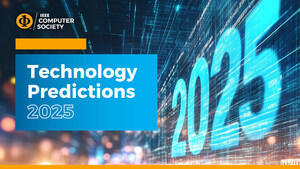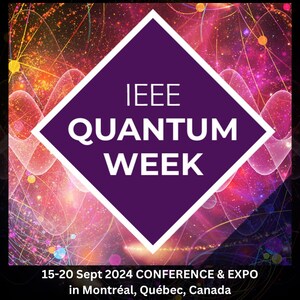Workshops on augmented, virtual, and mixed reality; autonomous vehicles; healthcare advancements; and smart cities demonstrate path toward solving critical questions in AI research
LOS ALAMITOS, Calif., May 1, 2024 /PRNewswire/ -- As the preeminent event for research and development in computer vision, artificial intelligence (AI), machine learning (ML), augmented, virtual and mixed reality (AR/VR/MR), deep learning, and much more, the Computer Vision and Pattern Recognition (CVPR) Conference annually reveals the latest developments in the field. However, as research progresses, so too does it introduce a litany of new questions. At CVPR 2024, scheduled for 17-21 June at the Seattle Convention Center in Seattle, Wash., U.S.A., workshops will offer a deeper investigation of some of the biggest obstacles facing the field, evaluating the next generation of AI technologies and their applications.
"Workshops are designed to explore topics from a problem-resolution point of view," said Walter J. Scheirer, University of Notre Dame, Notre Dame, Ind., U.S.A., and CVPR 2024 General Chair. "These hands-on sessions encourage scientists and engineers to chip away at issues plaguing computer vision and build toward viable, efficient, and market-ready solutions."
For example, the following workshops speak to some of the complex questions facing the industry:
- Automobiles: Virtual Humans for Robotics and Autonomous Driving
CVPR Workshop: Populating Empty Cities – Virtual Humans for Robotics and Autonomous Driving
In recent years, simulation environments have emerged as a promising way to train autonomous systems. However, the environments act like ghost cities—human simulation is not included. Now, new avenues of human simulation are experiencing great progress, particularly in human rendering, reconstruction, animation, and motion synthesis with realism and fast speed, begging the question: How can this progress in virtual humans bring a new revolution in robotics and autonomous driving? - Entertainment/Consumer Electronics: Computer Vision for Mixed Reality
CVPR Workshop: Workshop on Computer Vision for Mixed Reality
New techniques applied in AR/VR/MR technologies, such as those in Quest-3 and Apple Vision Pro, enable users to build deeply immersive experiences which mix the virtual and the real world into one. That blurring of lines begs for more realistic experiences, even while MR poses a set of very unique research problems in computer vision that are not covered by virtual reality. In this workshop, participants from Meta Reality Labs and Google, among others, explore: How can technology capture the real environment around the user, reconstruct that environment with high fidelity, and apply it in real-time? - Healthcare: AI for Medical Imaging
CVPR Workshop: Domain adaptation, Explainability and Fairness in AI for Medical Image Analysis (DEF-AI-MIA)
In the past few years, deep learning techniques have made rapid advances in many medical image analysis tasks. In pathology and radiology applications, these approaches have managed to increase the accuracy and precision of medical image assessment, which is often considered subjective and not optimally reproducible, by extracting more clinically relevant information from medical images than what is possible in current routine clinical practice by human assessors. With those developments in mind, this workshop seeks to understand: What development and validation work lies ahead before AI-based methods can be fully integrated and used in routine clinical tasks? - Smart Cities: AI City Challenge
CVPR Workshop: 8th AI City Challenge
This workshop focuses on harnessing AI to enhance operational efficiency in physical settings such as retail environments and Intelligent Traffic Systems (ITS). It aims to utilize AI for actionable insights from sensor data, like camera feeds, to improve traffic safety and transportation outcomes. It seeks to uncover: What approaches can enhance multi-camera people tracking, traffic safety analysis, naturalistic driving action recognition, fish-eye camera road object detection, and motorcycle helmet rule violation detection?
In addition to AI City Challenge, other workshop "challenge" sessions tackle open questions through competition. Participants in these sessions strive to solve issues through new experimental techniques, contending for the top ranking among participating groups. Such workshops include: 2nd Workshop and Challenge on DeepFake Analysis and Detection; GenAI Media Generation Challenge for Computer Vision Workshop; and 4th Workshop and Challenge on Computer Vision in the Built Environment for the Design, Construction, and Operation of Buildings, among others. A complete list of workshops can be found at https://cvpr.thecvf.com/Conferences/2024/workshop-list.
"Competition in workshops fuels focus on outcomes and the techniques that support their success," remarked Scheirer. "From these sessions, ideas emerge, research paths are uncovered, and new collaborations take shape. In many cases, this friendly competition helps spark what's next on a particular topic."
Given the growing computer vision community and a large number of CVPR workshops, this year, the Workshop Chairs grouped workshops together into thematic "tracks," where workshops within each track cover closely related topics and are spread out throughout the schedule.
"Our goal in making these changes to the workshops' schedule and organization was to help improve the overall attendee experience," said Abhinav Shrivastava, University of Maryland, College Park, M.D., U.S.A., on behalf of the CVPR 2024 Workshop Chairs.
Registered media may attend workshops, which all take place on 17 or 18 June. To register for CVPR 2024 as a member of the press and/or sign up for a specific workshop, visit https://cvpr.thecvf.com/Conferences/2024/MediaPass. For more information on the conference, visit https://cvpr.thecvf.com/.
About CVPR 2024
The Computer Vision and Pattern Recognition Conference (CVPR) is the preeminent computer vision event for new research in support of artificial intelligence (AI), machine learning (ML), augmented, virtual and mixed reality (AR/VR/MR), deep learning, and much more. Sponsored by the IEEE Computer Society (CS) and the Computer Vision Foundation (CVF), CVPR delivers the important advances in all areas of computer vision and pattern recognition and the various fields and industries they impact. With a first-in-class technical program, including tutorials and workshops, a leading-edge expo, and robust networking opportunities, CVPR, which is annually attended by more than 10,000 scientists and engineers, creates a one-of-a-kind opportunity for networking, recruiting, inspiration, and motivation.
CVPR 2024 takes place 17-21 June at the Seattle Convention Center in Seattle, Wash., U.S.A., and participants may also access sessions virtually. For more information about CVPR 2024, visit cvpr.thecvf.com.
About the Computer Vision Foundation
The Computer Vision Foundation (CVF) is a non-profit organization whose purpose is to foster and support research on all aspects of computer vision. Together with the IEEE Computer Society, it co-sponsors the two largest computer vision conferences, CVPR and the International Conference on Computer Vision (ICCV). Visit thecvf.com for more information.
About the IEEE Computer Society
Engaging computer engineers, scientists, academia, and industry professionals from all areas and levels of computing, the IEEE Computer Society (CS) serves as the world's largest and most established professional organization of its type. IEEE CS sets the standard for the education and engagement that fuels continued global technological advancement. Through conferences, publications, and programs that inspire dialogue, debate, and collaboration, IEEE CS empowers, shapes, and guides the future of not only its 375,000+ community members, but the greater industry, enabling new opportunities to better serve our world. Visit computer.org for more information.
SOURCE IEEE Computer Society

WANT YOUR COMPANY'S NEWS FEATURED ON PRNEWSWIRE.COM?
Newsrooms &
Influencers
Digital Media
Outlets
Journalists
Opted In






Share this article